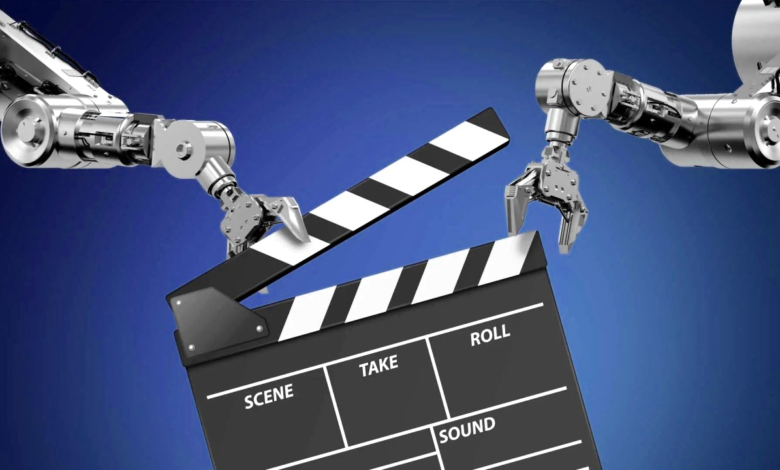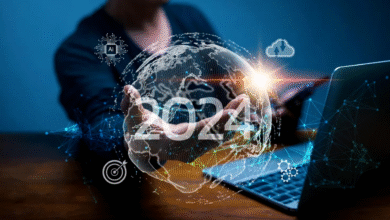
Hollywood is undergoing a transformation. Many human creatives voiced their opposition to using AI for scriptwriting and similar duties after the 2023 Writers Guild of America protests.
But movie studios seem to be oblivious to these worries, as more and more of them are signing partnerships with big AI suppliers. Aneesh Chaganty, The Spurlock Sisters, Casey Affleck, and others will be able to use Meta’s Movie Gen model to develop short films thanks to a partnership that Blumhouse and the tech giant just finalized last week.
The timing is perfect, coming only one month after Lionsgate and Runway signed a contract allowing Runway to build and train an AI model using films produced by Lionsgate. It should be mentioned that OpenAI has also been contacting Hollywood studios to market their text-to-video concept.
The film industry as a whole is looking at generative AI as a possible cost-cutting measure in light of these deals.
How will Hollywood use GenAI in the future? Our goal for the day is to understand that plot.
How Will AI Impact the Film Industry in the Future?
In an industry where production expenditures can easily exceed hundreds of millions of dollars each film, generative AI is a technology that film companies are interested in due to its ability to reduce costs.
The studio can save money on graphic designers and animators if they can automate the creation of virtual media assets using a generative AI model.
In an open statement, Lionsgate said that its collaboration with Runway opened the door to “capital-efficient content creation opportunities” and mentioned that a number of its directors were eager to investigate possible applications during pre- and post-production.
According to Scott Mann, co-CEO and founder of Flawless AI, a Hollywood producer and director who has worked with stars like Pierce Brosnan, Robert De Niro, Kate Bosworth, and Bruce Willis, AI will play an essential part in the industry’s future.
As Mann said:
There has been a dramatic reduction in funding for high-quality, original material due to the current state of our beloved legacy sector, which is characterized by lengthy development cycles, exorbitant production costs, and small audiences.
“But new products that can use AI legitimately have the ability to transform and save the industry and turn it into a thriving artistic business that can benefit creatives and audiences alike.”
Mann has personal experience with artificial intelligence (AI) in the context of production cost management; for example, in 2015’s Heist, he used AI to change Robert De Niro’s expression to match the German dub.
Artificial intelligence had a role in this case by preventing a worse watching experience or an expensive reshoot.
One may make the case that the creative industry reaped benefits from this application rather than suffered losses. However, let’s delve further into the subject.
How AI in Movies Impacts Human Creatives
There will be less need for creatives as soon as production tasks like design, animation, and others are computerized.
Concerned that ChatGPT and similar tools could eventually replace human writers, the Writers Guild of America pushed for regulations prohibiting the use of AI in screenwriting.
Consequently, human creatives will face a decline in employment opportunities and a host of other problems if companies and filmmakers like Blumhouse and Lionsgate begin to use AI in pre- and post-production processes.
According to Mann:
Many people in this field have valid concerns regarding the application of artificial intelligence (AI) and the goals it serves, and their voices are heard among others who disagree.
“Actors worry about losing control over their digital likenesses, writers fear being replaced in scriptwriting, and filmmakers are concerned AI could be used to cut costs, possibly at the expense of quality.”
Using AI to dictate story and aesthetic decisions in films would probably be a huge mistake. Generalized speaking, the incorporation of generative models into a film’s production and design process immediately obliterates the filmmaker’s original intent.
The employment of third-party machine learning models to make decisions regarding aesthetic choices and other design aspects dilutes the influence of human filmmakers, even though they can still supervise the models’ usage.
The Risk of AI Models Scraping Films
The serious problem of unlicensed film scraping for AI model training looms in the backdrop as well. Already, claims have surfaced that Runway trained its models using pirated films and videos from YouTube.
Mann added in:
It is critical that we make ethical decisions about the use of AI in the industry right now. It is important that the appropriate parties get the benefits.
The practice of large tech businesses training their AI models—which frequently involves stealing creative information from the internet without authorization or payment—is a big concern.
The entertainment industry’s finest work is being stolen to build these AI models without a proper system in place to manage rights or offer licensing.”
It is difficult to determine if the harm has already been done, but more proactive license agreements between movie studios and AI suppliers could assist in preventing unethical scraping in the future.
Indeed, AI suppliers are able to strike deals with publishers and film studios, whereas human artists who have granted permission to these same companies seem to be left with little recourse when their works are utilized.
Conclusion
AI might cause a major upheaval in the film industry that goes well beyond computer-generated imagery. The claim that artificial intelligence would have a net positive impact on the industry is worth being cautious about, even though it’s too early to tell if filmmakers’ experimental pilots will lead to anything.
Maybe audiences and creators will be able to endure mild AI applications, but if AI models eventually make design decisions and human creators are reduced to supporting roles in film creation, I think we will all find it difficult to connect with the final product.







